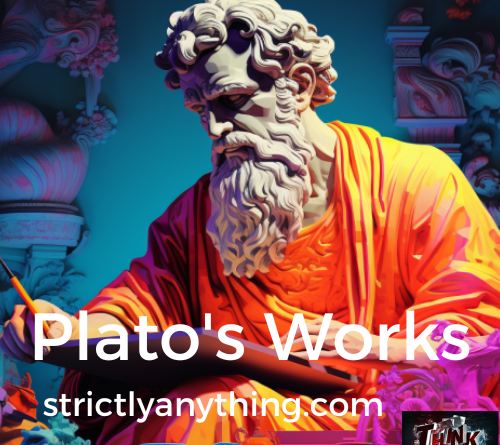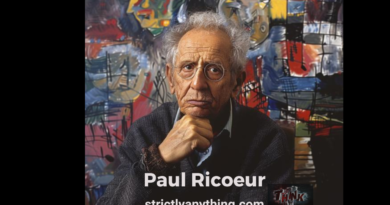Plato’s Works
Plato’s Greatest Work: The Republic When it comes to discussing Plato and his works, one cannot escape mentioning his magnum opus, The Republic. This masterpiece of philosophical thought is not only one of Plato’s most famous works but is also widely regarded as one of the greatest texts ever written in the realm of philosophy.
The Republic explores a range of profound ideas, from the nature of justice and morality to the structure and functioning of an ideal society. In this dialogue, Plato creates a captivating narrative where Socrates engages in thought-provoking discussions with various interlocutors.
One such memorable encounter takes place with Thrasymachus, who argues that justice is merely the advantage of the stronger. Plato skillfully weaves together these dialogues to present a comprehensive vision for an ideal society that reflects his overarching philosophy.
He proposes a model where individuals are classified into different classes: rulers, guardians, and producers. Each class serves a specific role to maintain harmony within society.
The rulers are characterized by their wisdom and knowledge, while guardians possess courage and moderation. Within The Republic, Plato delves into various thought experiments and allegories to drive home his points.
One famous example is the “Allegory of the Cave,” which presents an analogy for human perception and enlightenment. In this allegory, prisoners are confined in a cave since birth, only seeing shadows cast on its walls by objects outside.
When one prisoner escapes into the sunlight and experiences true reality for the first time, it symbolizes enlightenment or gaining genuine knowledge. Furthermore, The Republic explores concepts such as education and censorship as means to shape citizens’ minds towards virtue and excellence.
Plato advocates for strict control over artistic expression in order to prevent corrupting influences on society’s moral fabric. The impact of The Republic reaches far beyond its historical context; it continues to inspire countless scholars even centuries later.
Its exploration of justice, government structure, education systems, and philosophical ideals remains relevant and thought-provoking in contemporary society. Plato’s ability to engage readers through vivid dialogues and allegories makes The Republic an enduring masterpiece that continues to captivate audiences with its timeless wisdom.
Phaedo
is undoubtedly one of Plato’s most captivating works, diving deep into the philosophical realm as it explores the concept of immortality. Set in Socrates’ final hours before his execution, Phaedo provides readers with a profound dialogue between Socrates and his disciples.
It serves as a thought-provoking farewell to life, showcasing Plato’s intellectual prowess and his philosophical musings. In Phaedo, Plato delves into the idea of the soul being immortal, intertwining it with various arguments and theories.
One such argument arises from Socrates’ belief that true philosophers should embrace death without fear. He asserts that death is merely the separation of the soul from the body, allowing it to return to its divine origin.
Through eloquent discourse, Plato presents an intricate web of reasoning that challenges readers to ponder their own views on life after death. Furthermore, in Phaedo, Plato intertwines his philosophical ideas with references to previous works such as Meno and The Republic.
He builds upon discussions held in these dialogues to further enhance his arguments regarding the immortality of the soul. By referencing these earlier works, Plato harmoniously connects different aspects of his philosophy together, reinforcing their significance within his overall body of work.
Moreover, Phaedo showcases Plato’s exceptional ability to craft compelling narratives while exploring complex ideas. Unlike some of his other dialogues where multiple characters engage in conversation, here we witness an intimate gathering solely focused on Socrates’ impending death and its philosophical implications.
This narrative choice allows for a more concentrated exploration of ideas surrounding mortality and immortality. Overall, Phaedo stands out as a masterpiece within Plato’s corpus due to its intricate examination of metaphysical concepts and its seamless integration with other dialogues like Meno and The Republic.
It not only demonstrates Plato’s intellectual prowess but also highlights his ability to engage readers through thought-provoking discussions on life’s most profound questions. Through Socrates’ final moments, Plato invites us to engage in contemplation and challenges us to ponder our own beliefs on the immortality of the soul.
Meno
In the dialogues of Plato, one cannot overlook the significance of “Meno.” This particular work showcases Plato’s intellectual prowess and his ability to engage readers in thought-provoking discussions. Within these pages, Plato dives into the nature of virtue and knowledge, using the character Meno as a vehicle for exploration. “Meno” begins with a conversation between Socrates and Meno, a young aristocrat.
The dialogue opens up with Meno’s inquiry about whether virtue can be taught or if it is an innate quality possessed by only a select few. Socrates skillfully leads Meno through a series of questions to uncover the essence of virtue.
Through this discourse, Plato presents his theory on moral development and education. One key concept explored in “Meno” is the doctrine of recollection.
According to this theory, Socratic in nature, all knowledge is inherent within us from past lives but remains dormant until it is awakened through questioning and contemplation. Socrates uses an example involving geometry to illustrate this point: by asking probing questions, he guides a slave boy to solve geometric problems even though he had no prior formal education on the subject.
Furthermore, Plato uses “Meno” as an opportunity to delve deeper into his metaphysical beliefs regarding forms or ideas. These forms are eternal and unchangeable entities existing outside our physical world yet influencing our perceptions of reality.
In discussing virtue as a form, Socrates challenges Meno’s perception that different virtues exist for different contexts or individuals; rather, he argues that there exists one universal concept of virtue applicable to all situations. “Meno” provides insights into Plato’s political philosophy.
Towards the end of the dialogue, Socrates discusses how virtuous rulers should govern society based on knowledge rather than self-interest or popular opinion. He emphasizes that true leaders need both wisdom and moral integrity to guide society towards justice and excellence – themes further developed in Plato’s magnum opus, “The Republic.”
“Meno” is a thought-provoking dialogue that showcases Plato’s brilliance in exploring philosophical concepts. Through Socratic questioning, Plato unravels the nature of virtue and knowledge while revealing his theories on recollection and forms.
Additionally, he lays the groundwork for his political philosophy by discussing the qualities of virtuous rulers. By diving into this work, readers can gain profound insights into Plato’s intellectual world and appreciate his invaluable contributions to Western philosophy.
Conclusion
Plato’s works are a testament to his brilliance as a philosopher and his unwavering pursuit of truth and wisdom. Throughout his dialogues, he engages the readers in thought-provoking discussions on various topics ranging from ethics and politics to metaphysics and epistemology. By presenting philosophical ideas through the conversations between Socrates and other characters, Plato skillfully weaves together complex concepts in an accessible manner.
One of Plato’s most notable works is “The Republic,” where he delves deep into the ideal state and explores justice, education, and the nature of reality. Through this dialogue, Plato challenges our conventional notions of governance and advocates for a society guided by philosopher-kings who possess both intellectual prowess and moral virtues.
His vision of an ideal society resonates with readers even today, as it prompts us to reflect on the values that underpin our own communities. Another significant work is “Phaedo,” where Plato recounts Socrates’ final day before his execution.
In this dialogue, Socrates engages in discussions about the immortality of the soul, presenting arguments that suggest the existence of an afterlife. Through compelling reasoning and intellectual rigor, Plato invites readers to question their own beliefs about death while contemplating the possibility of an eternal soul.
In “Meno,” Plato explores the nature of virtue by engaging in a dialogue with Meno on whether virtue can be taught or acquired through practice. This conversation highlights Plato’s theory of recollection, suggesting that all knowledge is innate within us but needs to be accessed through proper questioning and introspection.
By emphasizing the importance of self-reflection and critical thinking in acquiring knowledge, Plato encourages us to embark on a lifelong journey towards wisdom. Reflecting upon these works collectively reveals themes such as justice, moral virtue, knowledge acquisition, and metaphysical inquiries which have withstood the test of time.
Moreover, they remind us that philosophy is not merely confined within ivory towers but is relevant to our daily lives, urging us to critically examine our beliefs and strive for a better society. Plato’s works continue to inspire scholars, students, and enthusiasts alike with their timeless wisdom and intellectual depth.
By delving into the dialogues of Plato and immersing ourselves in his philosophical inquiries, we can gain valuable insights into the human condition and cultivate a more profound understanding of the world around us. As we embark on our own journeys towards intellectual growth, let Plato’s legacy serve as a guiding light, reminding us of the boundless potential within each of us to seek truth and pursue wisdom.

